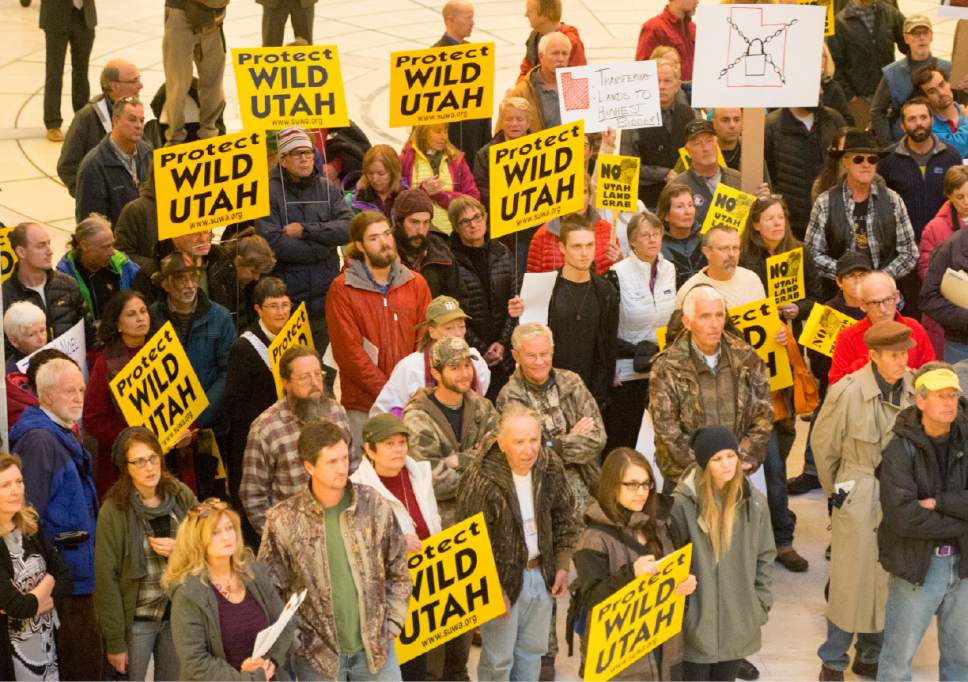This is an archived article that was published on sltrib.com in 2016, and information in the article may be outdated. It is provided only for personal research purposes and may not be reprinted.
Western attorneys general have added their voice to the chorus of legal experts who don't give much chance to Utah successfully suing the federal government to transfer millions of acres to the state.
The Conference of Western Attorneys General, representing AGs from 15 western states and three U.S. territories, signed off on a report that says previous U.S. Supreme Court rulings have repeatedly given the U.S. government the right to own land in the states and the right to decide whether to dispose of it. That precedent makes a new lawsuit unlikely to succeed.
The report was approved at a summer meeting of the group in an 11-1 vote, with the only no vote coming from Nevada's attorney general. (Utah AG Sean Reyes did not participate in the vote and declined to comment on the report when asked about it last week.) Utah legislators have indicated they're willing to commit up to $14 million to the fight, although the decision to file suit has not been made yet.
Two things are noteworthy about the Conference of Western Attorneys General: First, the majority of members are Republicans. Second, their states contain the vast majority of federal lands in the nation.
In other words, this group is quite familiar with the travails of land management that is ultimately controlled from Washington, D.C., and they're still not seeing where a Utah lawsuit is going to be helpful. (The AGs also didn't even consider the cost to the state if it actually had to manage the lands, which should be another red flag for conservative Utahns.)
And if judicial precedent wasn't enough, those hoping to sue for a lands transfer also face a stiff headwind in the makeup of the Supreme Court. With the death of Antonin Scalia — a justice who was considered to be possibly sympathetic — the court dropped to eight justices. For its challenge to be successful, Utah would need a court majority, meaning at least 5 to 3.
Even Rep. Mike Noel, arguably the loudest voice in Utah for limiting federal land management, saw the writing on the wall last March after Scalia's death: "I'm just worried about the politics of this. It might not be decided on the merits and more on the politics. That seems to be what has happened in the courts. A four-four tie doesn't get us anywhere."
If Hillary Clinton prevails in November, it appears unlikely she would appoint justices who would lean toward a land transfer, and even a Donald Trump victory would not guarantee a more sympathetic court. After the election, Utah should take the opportunity to re-evaluate this quixotic pursuit. Expensive longshots are not the Utah way.



